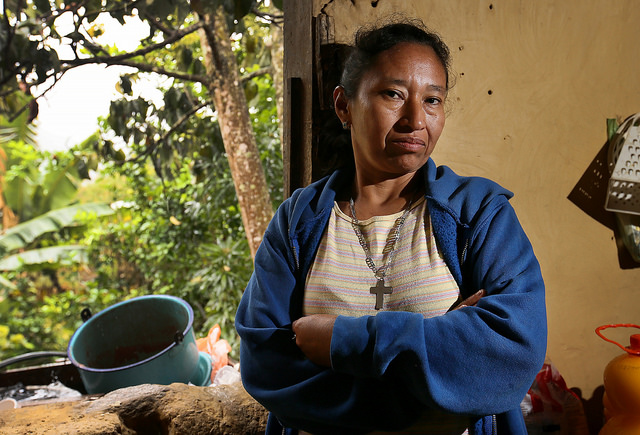Big Four Causes of Poverty in Honduras

Honduras is one of the poorest countries in Central America, with an estimated 51.3% of the population living in poverty. Political and socioeconomic vulnerabilities have subjected many residents to food insecurity and violence, putting high-risk groups such as women, children and people living in rural areas in great danger of succumbing to extreme poverty.
Below are the four main causes of poverty in Honduras:
Hunger and Malnutrition
Honduras has a population of over ten million people, yet acute food insecurity affects an estimated 2.3 million of this number every year. Increasing levels of inequality, vulnerability to extreme weather conditions and a lack of access to vital resources have contributed to widespread hunger, especially for residents living in rural and indigenous areas. Chronic malnutrition also causes stunting in 23% of children and can be attributed to low nutrient density in available foods, the prevalence of early childbearing and poor child-feeding practices. Lacking nutrients of concern include zinc, vitamin B2, vitamin B6, niacin, folate and vitamin C.
Natural Disaster and Drought
Honduras is highly vulnerable to natural disasters. Hurricanes, heavy rain, flooding and frequent droughts often destroy crops and hinder agricultural production. Rural populations are especially dependent on agriculture as a source of livelihood and food security. The country’s economy also bases much of its revenue on agriculture, specifically key export crops such as sugarcane, bananas and coffee beans. In times of severe weather conditions or natural disasters, many vulnerable populations are often subject to large-scale crop devastation and significant infrastructure damage, which causes income loss and forced displacement.
High Unemployment
Honduras is heavily reliant upon remittances, which constitute approximately 29% of its GDP. Remittances allow the Honduran government to maintain hard currency reserves and provide families with the ability to afford food, education, health care and housing. However, the success of remittances has removed the government’s incentive to provide basic services to citizens, which has fueled migration and curbed economic growth. Without state intervention to provide better economic opportunities to residents, such as increased job opportunities, many are left to rely on an informal economy that only contributes to around 20% of the country’s GDP. Without the means to enter into a formal labor force, a growing number of Hondurans drawn by the attractiveness of remittances are migrating, often through illegal methods, which puts them at risk of being victims of criminal activity or becoming poor in other nations abroad.
Violence
Honduras has the highest murder rate in the world, with a homicide rate of 38.34 as of 2021. The level of crime has cost the country an estimated 6.5% of its annual GDP. Pervasive violence in Honduras – which predominantly consists of theft, extortion, corruption and homicide – has historically dismantled neighborhoods and encouraged mass migration.
The prevalence of violence and homicide is largely related to drug trafficking and gang warfare. Crime and violence in Honduras have negatively impacted its economy, as resources that could be used to provide additional food security or a better educational system are instead allocated to counter criminal activity. Despite the government’s focus on combating crime, police investigative techniques and new citizen security policies have often proved to be ineffective, maintaining the high level of risk attributed to impoverished urban communities. This, in turn, perpetuates poverty in Honduras.
A Brighter Future: World Food Programme
While the causes of poverty in Honduras appear to be rooted in a variety of issues, many organizations such as the World Food Programme (WFP) have provided support and services to people in need by providing well-balanced meals to students and food to disaster-stricken populations. By working alongside the government, the WFP has supported the development of a national pathway for food systems transformation and has donated approximately $1.2 million to school-based programs to support better education. Along with other humanitarian groups, WFP has promoted the resilience of national systems linked to emergency preparedness and response, social protection and support for nutritionally vulnerable groups. These efforts, coupled with a greater sense of awareness, may serve to help to reduce poverty in Honduras.
– Sarah Jane Fraser, Moon Jung Kim
Photo: Flickr
